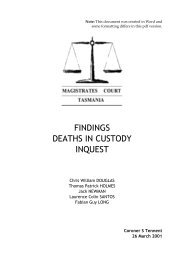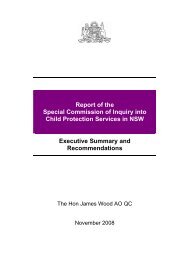R V BIRKS
R V BIRKS
R V BIRKS
Create successful ePaper yourself
Turn your PDF publications into a flip-book with our unique Google optimized e-Paper software.
continued to work as she had sworn that she proposed to do. Gibbs J<br />
(at 370-371) pointed out that the plaintiff had not been cross-examined<br />
upon her evidence in that regard and that therefore it would not have<br />
been open to the jury to reject that part of her case. It would have been<br />
'unreasonable' for them to have taken a contrary view, and his Honour<br />
concluded that it was not open to the respondent to support its case<br />
upon the basis that it had."<br />
The above passage indicates the variety of circumstances in which a failure<br />
to observe the rule can manifest itself, and the ways in which a significant<br />
unfairness may be avoided.<br />
However, as in the present case, it is often suggested that the practical<br />
effect of the rule goes a good deal further. It is one thing to say that the<br />
interests of fairness to a witness or a party require observance of the rule,<br />
and that some interests of fairness may well produce various consequences if<br />
the rule is not observed. However, the rule is often invoked for the purpose<br />
of entering into another area of discourse, that is to say, the drawing of<br />
inferences by a tribunal of fact. This is what is often behind references that<br />
are made to a "comment" following apparent non-observance of the rule. It<br />
is important, in the interests of accuracy, to consider the substance of the<br />
comment to which reference is made. It is one thing to remark upon the fact<br />
that a witness or a party appears to have been treated unfairly. It is quite<br />
another thing to comment that the evidence or unsworn statement of a<br />
person should be disbelieved, perhaps as a recent invention, because it raises<br />
matters that were not put in cross-examination to other witnesses by that<br />
person's counsel. Depending upon the circumstances of the case either or<br />
both of those comments may be available: see, eg, R v Robinson [1977] Qd R (1990) 387<br />
at 394. However, especially in a criminal trial, there are considerations<br />
which may indicate the need for caution. What happened in the present case<br />
is an excellent illustration of those considerations. They were referred to by<br />
King CJ in the Court of Criminal Appeal in South Australia in R v Manunta<br />
(28 July 1989, unreported). In that case a trial judge had drawn attention to<br />
the fact that the accused's counsel had failed to put in cross-examination<br />
certain exculpatory matters to which the accused later made reference. The<br />
trial judge drew the jury's attention to the rule in Browne v Dunn and said:<br />
"You are entitled, for example, to ask yourselves, ladies and<br />
gentlemen, could these be matters of recent invention be concocted by<br />
the defendant and his witness in an attempt to cast doubts on the<br />
evidence of the police officers without giving to the police officers the<br />
opportunity of contradicting this proposition"<br />
King CJ said:<br />
"It seems to me that the failure of counsel to cross-examine the police<br />
officers on the topic left open the inference that the challenge to the<br />
notes was an afterthought on the part of the appellant and was simply a<br />
lie told in cross-examination because he thought it would serve his<br />
interests. The cogency of such an inference might be open to question.<br />
It is possible that the idea that the police were referring to notes other


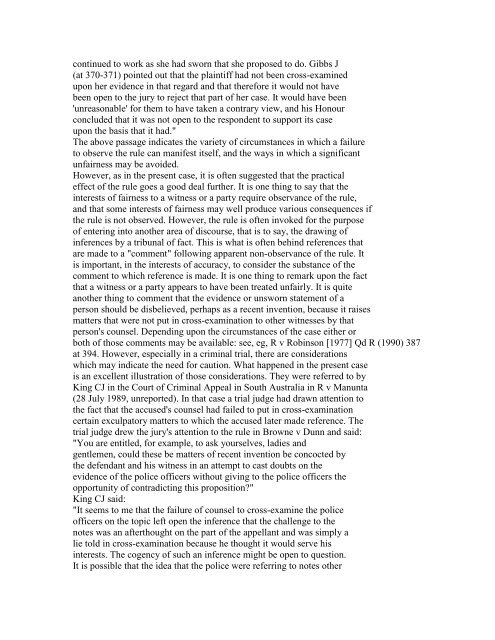
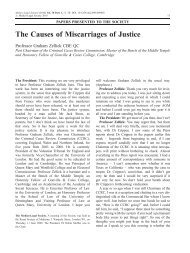
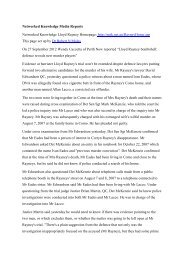
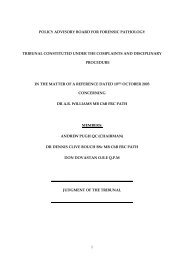
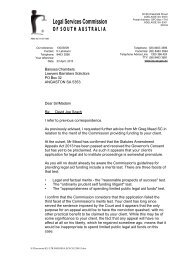
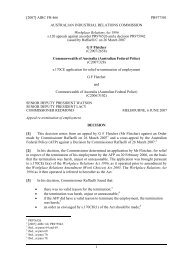
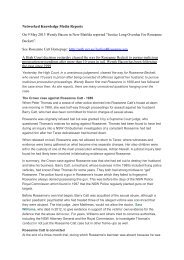
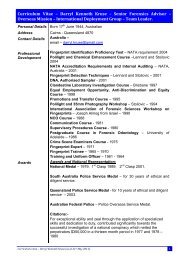
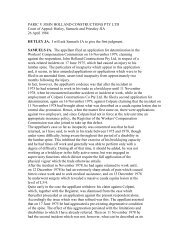
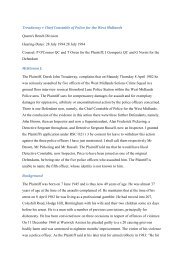
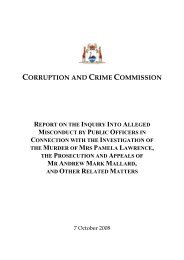
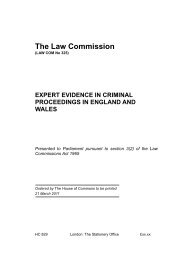

![R v Gilham [2012] NSWCCA 132 - verdicts of acquittal](https://img.yumpu.com/40383571/1/184x260/r-v-gilham-2012-nswcca-132-verdicts-of-acquittal.jpg?quality=85)
